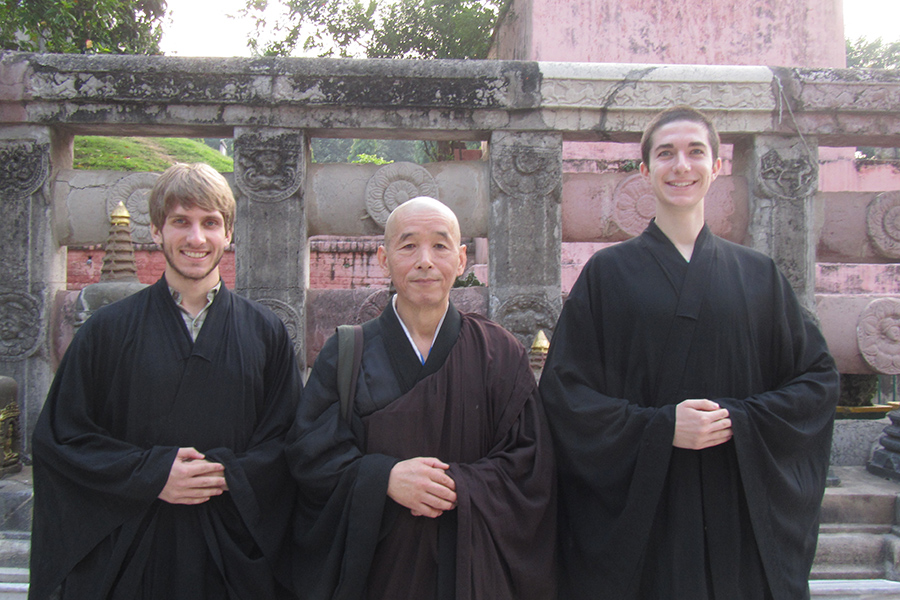

Venture Boldly

Office of Communications
2 East South Street
Galesburg, IL 61401


Benjamin Yoder-Henley participated in the Antioch India: Buddhist Studies program during fall 2012. He studied meditation and Buddhism while living in the Burmese Vihar (Monastery) in Bodh Gaya, India, the navel of the earth where Buddha attained enlightenment. A junior from Minneapolis, Minnesota, he is majoring in psychology and minoring in creative writing.
How did you learn about this opportunity?
I learned about this opportunity through the study abroad fair that was in the hallway between the Oak Room and the Café. My parents played a huge role by telling me that India would soon be the most populated country in the world and that it would be smart to better understand their culture. I also have always been interested in meditation and Buddhism.
What inspired you to pursue study abroad? Why did you select this particular program?
I was ready to have a break from Knox and ready to have a new experience that would challenge my view on life. I wanted to grow through being in a setting that was foreign to me and would be uncomfortable -- that way I would learn from the experience. I knew that India would be a completely new world, and I was intrigued to learn more about Buddhism and meditation.
Describe your day-to-day experiences.
Wake up at 5:00 a.m., meditate in the meditation hall, have a silent breakfast, attend Tibetan language class and anthropology about Buddhism and the Indian culture, practice speaking Tibetan, have lunch, meditate, eat dinner, do homework or explore the town or meditate at the Maha Bodhi Temple.
How do you think your experiences helped you in terms of your personal development?
I feel that this study abroad experience has changed my life in more ways than I can see right now. This experience helped justify ideas and beliefs I had before I left for India. I know for sure that I want to work outside and help others for the rest of my life. I now have a better understanding of impermanence and death, which is something that should not be feared but used as a tool to manage one's life instead of having the mindset of 'someday I will do that one thing that I have always wanted to do.'
Death is certain and when you will die is uncertain. Most people in the Western culture have a very hard time hearing that because we are living in a society that hides the old in nursing homes and focuses on youthfulness and new things. Through my experience, I know for sure that I will take care of my parents as they get older as they once did when I first came into this world. That is the least I can do for them. Also, I want to live my life in a way that if I were to die at any moment, I would be a happy man with no regrets. I would look back at my life smiling because I would be doing everything that is important to me and helping others. Money is important, but I will make sure that it is not running my life.
Did your experiences at Knox benefit you while studying abroad?
Knox's overall liberal arts education gave me a nice foundation that helped me interact with the other participants in the program. Knox also taught me how to have a good work ethic, which helped me manage the workload that was given to us in our classes in India.
What was the best part about your experience?
The best part was meditating twice a day and learning the importance of love, compassion, and impermanence. These are all valuable things that could, if applied, greatly improve one's life. I enjoyed living in a monastery with 35 other wonderful students that created a wonderful learning environment that was open and accepting.
Published on January 15, 2013